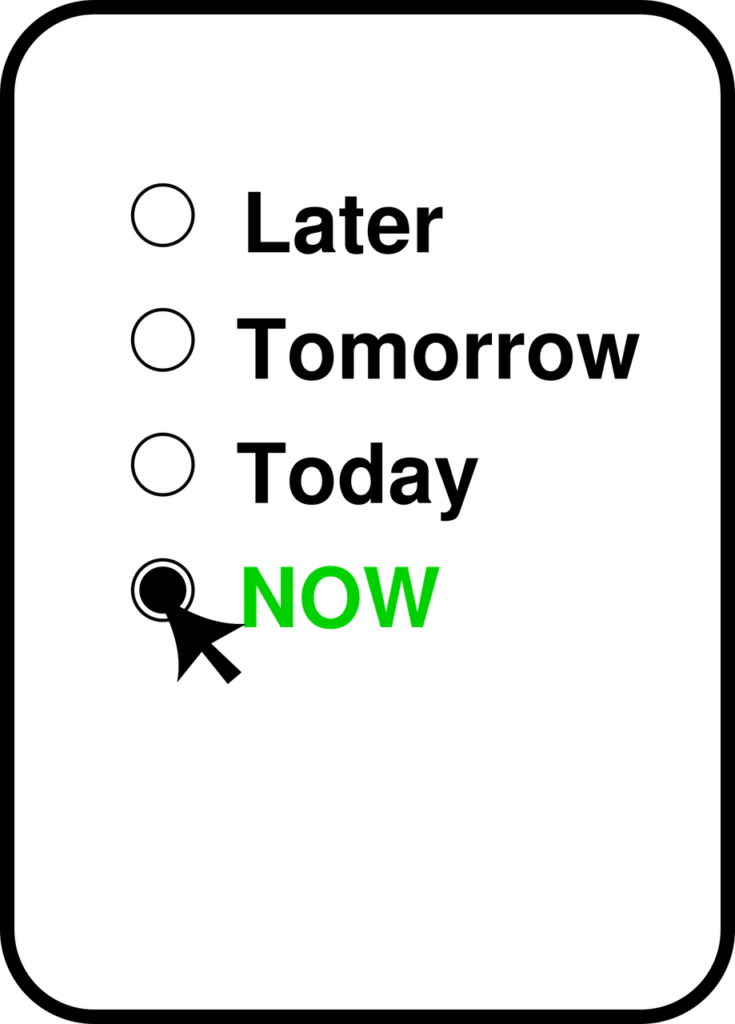
Whenever I sign an estate plan, I generally tell clients that I don’t want them to use it for the next 30 or 40 years, and we laugh. I use humor to defuse tension related to discussing your own demise – that is just my style. Nobody likes to talk about their own death. The topic is uncomfortable, and many children don’t want to talk about losing their parents. I completely understand why the topic of one’s own demise is not pleasant, but I assure you:
Getting Your Estate Plan Done Will Not Cause Your Death.
I don’t need to go into a long explanation of causation. I have seen various t-shirts, mugs, and other souvenirs or items that proclaim, “God put me on the earth with a certain number of things to accomplish. I am so far behind I will never die.” I don’t think that is the correct way of thinking either.
The truth of the matter is that we will all die. I sincerely hope that will not occur any time soon for any of my clients, even those who are over 100 years old! Just because you will not die any time soon does not mean you should put off preparing your estate plan. Your estate plan is about more than just your death. Your estate plan needs to be set up before an emergency prevents it from happening. And, your estate plan needs to be set up when there is enough time to set up the plan and the documents properly. The time to set up your estate plan is now.
Your Estate Plan is About More Than Just When You Die
 I have many other blog posts that talk about how your estate plan is not just about what happens to your stuff when you die, but rather about the end of life planning. You will need a financial power of attorney to allow someone to handle your financial affairs if you cannot. You will need a medical power of attorney to allow someone to handle your medical decisions if you cannot. You need to set these up while you have full mental capacity to make your own decisions. If you are incapacitated mentally, it is too late.
I have many other blog posts that talk about how your estate plan is not just about what happens to your stuff when you die, but rather about the end of life planning. You will need a financial power of attorney to allow someone to handle your financial affairs if you cannot. You will need a medical power of attorney to allow someone to handle your medical decisions if you cannot. You need to set these up while you have full mental capacity to make your own decisions. If you are incapacitated mentally, it is too late.
You need to plan for how you get from where you are to the end of your life. You may need to plan for an extended or chronic illness, or the need to live somewhere other than at home near the end of life. Or, you may need to plan to stay at home and receive care at your own home. You may need to plan for protecting assets from medical costs as you age, or from the government taking your assets, usually by Medicaid, in a long term care situation at the end of life. Whatever your needs are, you need to plan ahead.
You Need to be Prepared Before and Emergency
 You don’t want to leave your estate planning to the last minute. Several years ago, I met with a client who had suffered from a stroke, after a 3 year battle with liver cancer. I met with him on a Thursday, drafted documents on a Friday, and planned to get them signed on the next Wednesday. He passed away on Saturday, before anything was signed. I wanted to help him, but the process of creating the documents took time and it was too late. His daughter was angry at me for not getting things done in time, despite having had the previous 3 years to get it done. All around, it was a sad situation.
You don’t want to leave your estate planning to the last minute. Several years ago, I met with a client who had suffered from a stroke, after a 3 year battle with liver cancer. I met with him on a Thursday, drafted documents on a Friday, and planned to get them signed on the next Wednesday. He passed away on Saturday, before anything was signed. I wanted to help him, but the process of creating the documents took time and it was too late. His daughter was angry at me for not getting things done in time, despite having had the previous 3 years to get it done. All around, it was a sad situation.
In contrast, I got a call just a week ago from the children of a client who signed his will four weeks ago. The client did not seem in poor health and we both expected him to live several more years, or even decades longer. But, he suddenly passed away. His children called me and I gave them directions on what to do next. They were happy I could guide them and that they had a plan to follow. This client was prepared and had planned ahead. It made the conversation much more pleasant.
I once had a work supervisor who sent out an email stating, “I will be out of the office on Thursday and Friday. Please plan your emergencies for another day.” Obviously you cannot plan for when an emergency happens, but you can plan your estate so you are ready for an emergency.
Set Up Your Plan Now While You Can Contemplate Your Options

When setting up your estate plan, you will have many options. Should you use a trust, or is a will enough? Who will look after your minor children? Who should receive your assets? Who will you find trustworthy enough to make decisions for you? Who do you trust to handle all of the things that need to be done after you die? Who will be in a position to handle the difficult decisions at the end of life and after you are gone? These are all important questions that you need to consider, and you don’t want to rush into making these decisions.
Instead, you want to take time to think about the decisions. You may choose one person to handle your affairs, and you may change your mind later on. You may choose one way to distribute your assets, and change how you want to distribute the assets later in life. That is why you can amend and update an estate plan. But, you don’t want to have no plan, or a plan that you throw together at the last minute without considering the important questions above. You can take the time now to properly consider the questions and answer them in an estate plan that is carefully considered and crafted to reflect your wishes. Your estate plan will be in place and won’t run into the problems of last minute planning.
Create Your Plan Now, and Be Ready for What it Next
 We are currently in the midst of a pandemic, which has many people thinking about getting estate planning done sooner rather than later. A grocery store worker who did not consider that a high risk job is suddenly aware of the need for an estate plan. You may just find yourself thinking about how a new pathogen may be coming soon. Or, you may just want to plan ahead for the inevitability of death. I don’t want to scare anyone, but if you are prepared, you shall not fear. Get your estate plan done now, so that you are prepared for whatever lies ahead.
We are currently in the midst of a pandemic, which has many people thinking about getting estate planning done sooner rather than later. A grocery store worker who did not consider that a high risk job is suddenly aware of the need for an estate plan. You may just find yourself thinking about how a new pathogen may be coming soon. Or, you may just want to plan ahead for the inevitability of death. I don’t want to scare anyone, but if you are prepared, you shall not fear. Get your estate plan done now, so that you are prepared for whatever lies ahead.

 720-730-7274
720-730-7274









